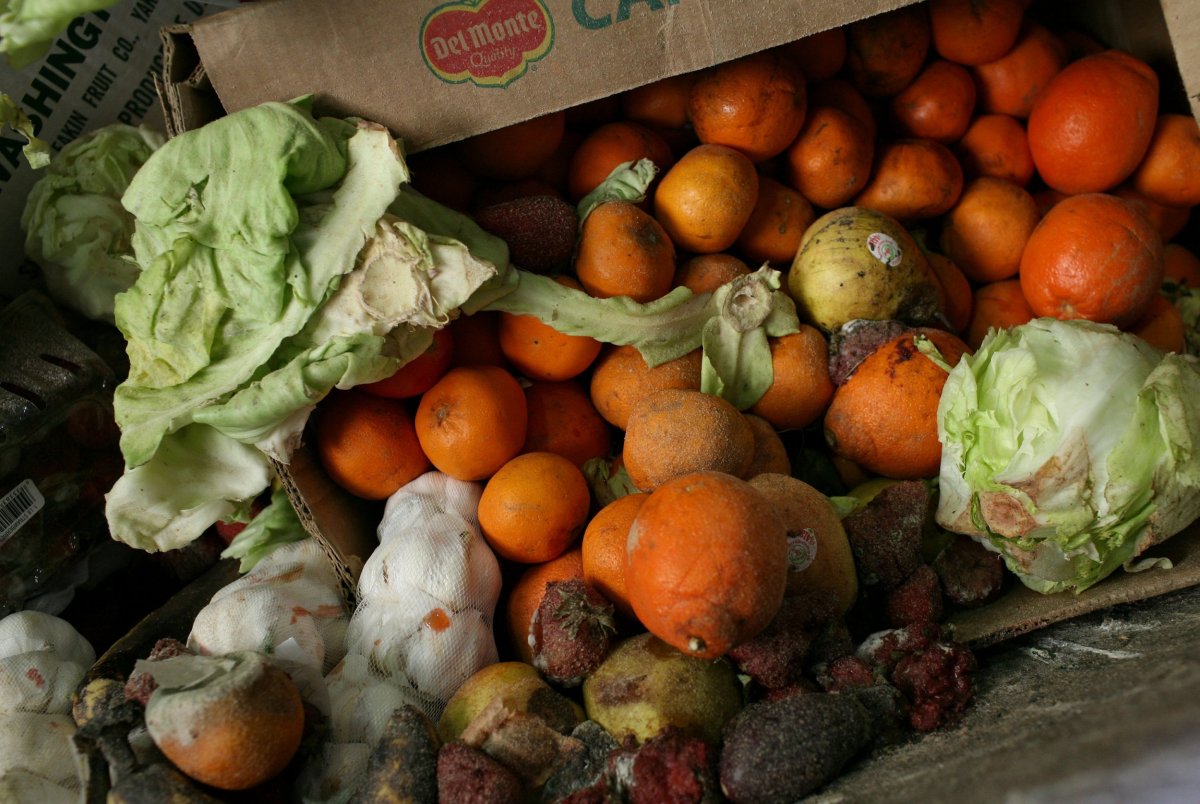Americans waste nearly 150,000 tons of food every day—equivalent to about a pound of food per person—according to a new study published in the journal PLOS ONE.
The quantity of wasted food amounts to around 30% of the average daily calories that each U.S. citizen consumes, the paper shows, and the amount differs depending on how healthy your diet is.
Researchers from the U.S. Department of Agriculture (USDA), the University of Vermont and the University of New Hampshire examined the period between 2007 and 2014 to investigate the impact of diet quality on food waste and environmental sustainability.
They found that the wasted food used up around 30 million acres of land every year—or 7% of all U.S. cropland—as well as 4.2 trillion gallons of irrigation water, 1.8 billion pounds of nitrogen fertilizer and 780 million pounds of pesticides. The use of these resources has a significant cost on the environment, the scientists say.
Providing a high-quality diet for the world's population that can be produced sustainably is one of the most pressing environmental issues. Previous studies have looked at the relationship between environmental sustainability and diet, but the new research is the first to explore this relationship including the additional factor of food waste.
The researchers examined data on food intake and diet quality from the 2015 Healthy Eating Index, in addition to data on food waste. They used biophysical computer simulations to estimate the amount of cropland used to produce the wasted food and looked at various government data sources to approximate the quantity of irrigation water, pesticides and fertilizers that went into this process.

They found that lower quality diets led to more wasted cropland and, unsurprisingly, provided less nutrients compared to higher quality diets—which include more fruits and vegetables. However, high quality diets were associated with increased food waste and were found to use up more water and pesticides.
"Eating higher quality diets with more fruits and vegetables should certainly continue to be a goal for us all, but we can simultaneously recognize that there may be more perishable items in these diets," Meredith Niles, co-author of the study from the University of Vermont, told Newsweek.
"Being proactive about food planning, storage, and repurposing of leftovers or fruits and vegetables with blemishes can go a long way to reducing food waste," she said. "I should also note that this is just one aspect of understanding the sustainability of diet quality, and there are many other metrics—such as greenhouse gas emissions, land use, and energy that are also important to consider."
Zach Conrad, lead author of the study from the USDA, added in a statement: "Food waste is an issue that plays out at many different levels. Looking at them holistically will become increasingly important to finding sustainable ways of meeting the needs of a growing world population."
Uncommon Knowledge
Newsweek is committed to challenging conventional wisdom and finding connections in the search for common ground.
Newsweek is committed to challenging conventional wisdom and finding connections in the search for common ground.
About the writer
Aristos is a Newsweek science reporter with the London, U.K., bureau. He reports on science and health topics, including; animal, ... Read more
To read how Newsweek uses AI as a newsroom tool, Click here.








